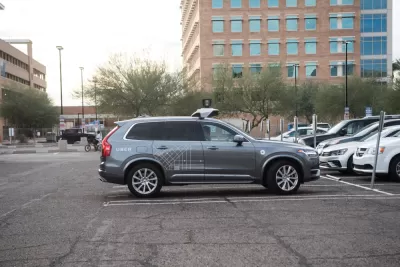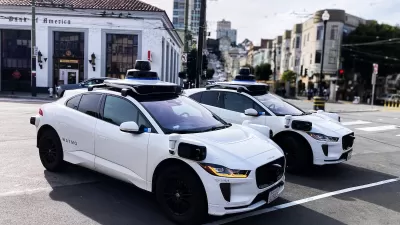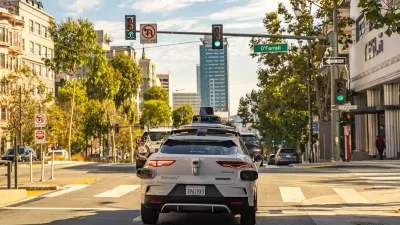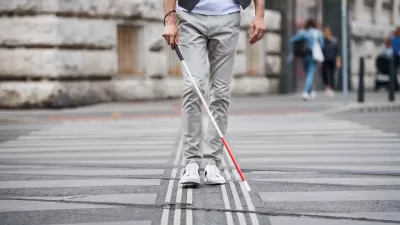Five self-driving car companies are currently operating in Pittsburgh, without much critical rigor in asking about the consequences of the technology to the city.

"The public has been exposed to risks associated with being guinea pigs in an AV lab, yet not a single public meeting has been held to address public concerns," writes Angie Schmitt, to introduce the premise of a new report from Pittsburghers for Public Transit (PPT) intended to raise awareness about the potential negative consequences of handing over the public realm to technological experiments.
More specifically, according to Schmitt, the report "argues that public concerns about equity, the environment and job security aren’t playing a larger role in the conversation about autonomous vehicle deployment."
Then there are questions about safety risks presented by self-driving cars to pedestrians and people on bikes. In addition to the risks exemplified by the first pedestrian killed by a self-driving car operated by Uber in Tempe, "pedestrians and cyclists risk losing funding for essential infrastructure like sidewalks and crosswalks to special street treatments for AVs," according to Schmitt's summary of the report.
"The city of Pittsburgh, for example, allocated $23 million from its 'Department of Mobility and Infrastructure' for testing and deployment of an 'autonomous micro transit shuttle,' which [Laura] Weins, the PPT director, called 'not really mass transit.'"
FULL STORY: Pittsburgh Reveals the Downside of Self-Driving Cars

Study: Maui’s Plan to Convert Vacation Rentals to Long-Term Housing Could Cause Nearly $1 Billion Economic Loss
The plan would reduce visitor accommodation by 25,% resulting in 1,900 jobs lost.

North Texas Transit Leaders Tout Benefits of TOD for Growing Region
At a summit focused on transit-oriented development, policymakers discussed how North Texas’ expanded light rail system can serve as a tool for economic growth.

Using Old Oil and Gas Wells for Green Energy Storage
Penn State researchers have found that repurposing abandoned oil and gas wells for geothermal-assisted compressed-air energy storage can boost efficiency, reduce environmental risks, and support clean energy and job transitions.

San Mateo Formally Opposes Freeway Project
The city council will send a letter to Caltrans urging the agency to reconsider a plan to expand the 101 through the city of San Mateo.

A Bronx Community Fights to Have its Voice Heard
After organizing and giving input for decades, the community around the Kingsbridge Armory might actually see it redeveloped — and they want to continue to have a say in how it goes.

Houston Mayor Promises Dedicated Austin Street Bike Lane After Public Backlash
Although the one-way bike lane won’t be protected by physical barriers, the proposal is an improvement over the mayor’s initial plan to only include sharrows on the Austin Street project.
Urban Design for Planners 1: Software Tools
This six-course series explores essential urban design concepts using open source software and equips planners with the tools they need to participate fully in the urban design process.
Planning for Universal Design
Learn the tools for implementing Universal Design in planning regulations.
Borough of Carlisle
Caltrans
Heyer Gruel & Associates PA
Institute for Housing and Urban Development Studies (IHS)
City of Grandview
Harvard GSD Executive Education
Toledo-Lucas County Plan Commissions
Salt Lake City
NYU Wagner Graduate School of Public Service





























